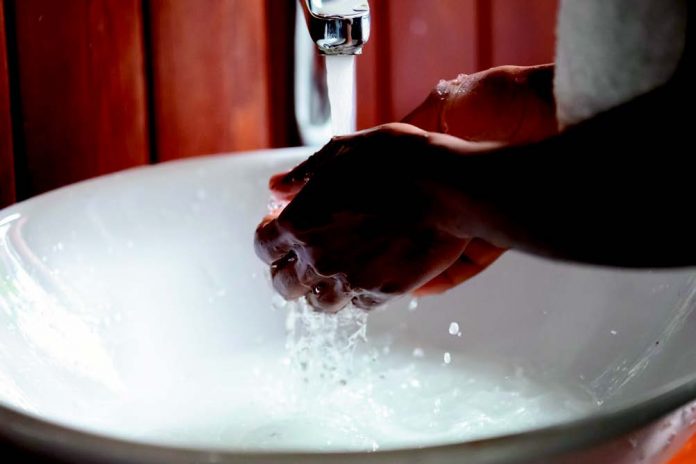PHILADELPHIA – The City announced a new set of policies protecting households who could risk losing water service last May 2022. These new policies are already reducing the number of Philadelphia households facing shutoffs, which will resume beginning July 20.
The new policies and Philadelphia’s existing affordability programs, among the most progressive in the nation, are designed to help customers pay water bills and avoid shutoff if they cannot pay.
The Philadelphia Water Department (PWD) and Water Revenue Bureau (WRB) noted many more customers are now taking advantage of the programs available or are protected from shutoff thanks to these policies.
Nearly 15,000 assistance applications have been submitted over the last year, an increase of 23 percent compared to the same period the year prior.
The City has been spreading the word about the new programs, including state grants and expanded assistance options, through advertising, social media, virtual and in-person utility fairs, email and text message campaigns, and media outreach. Direct outreach to customers with shutoff-eligible accounts is also planned and will be conducted by members of the Philly Counts outreach team.
Beginning July 20 and running through October 26, PWD will host online assistance clinics to support customers who need one-on-one help applying for affordability programs or payment agreements. The clinics will take place Wednesdays from 10 a.m. to 2 p.m., and appointments can be reserved at water.phila.gov starting next week.
New Shutoff Protections
Consistent with the Kenney Administration’s commitment to reversing government practices that have contributed to racial inequities and to improving the economic wellbeing and health of all Philadelphians, the PWD and WRB are implementing a multi-pronged approach to ensure customers who are unable to pay their water bills get the assistance they need and maintain water service. To date, these policy changes have provided shut off protection to over 111,00 households.
The policy changes, announced in May 2022, now in effect, include:
The level of delinquency that triggers a shutoff notice has been raised from $150 to $1,000.
Customers currently enrolled in the Tiered Assistance Program (TAP) are exempt from shutoff.
Customers currently enrolled in the Senior Citizen Discount program are exempt from shutoff.
Customers who have applied for Customer Assistance are exempt from shutoff for 14 days and will not be shut off while their application is being processed.
As an additional safeguard, the City will use internal data to match enrollment data from other low-income assistance programs and provide exemptions to those households.
The data matching process is being executed by the newly established Office for Integrated Data for Evidence and Action in the Managing Director’s Office. These policy changes are designed to focus enforcement on customers that can pay their bills while protecting vulnerable residents. PWD and WRB will continue to monitor the impact of the shutoff policies and existing programs that protect customers with financial or medical hardships.
Customer Assistance & State Grants
PWD and WRB have enhanced communications and outreach to provide additional information to customers who receive shutoff notices, directing them to the Tiered Assistance Program, payment agreements, and other services and resources. Furthermore, PWD and WRB expanded assistance programs to include options like debt forgiveness and developed more flexible payment agreements that make catching up easier.
“We have programs that can not only help you avoid getting shut off this month; but will also make your water bill more affordable every month,” said Philadelphia Water Department Commissioner Randy E. Hayman, Esq. “There have never been more opportunities to get help with water bills, and we are dedicated to ensuring people can afford these critical services. But we need to hear from you–so we can get you into the best program or agreement for your situation. Don’t wait until you have a shutoff notice — get in touch today.”
“Revenue is committed to all Philadelphians feeling financially stable. These additional protections and the data matching program are concrete steps towards that goal,” said Revenue Commissioner Frank Breslin. “Mayor Kenney pledged to create a more racially equitable city, and these efforts support that vision.”
Customers can request an application or apply for programs that make water services more affordable for their household at phila.gov/water-bill-help or by calling (215) 685-6300.
Applications can also be printed and submitted at the Municipal Services Building at 1401 JFK Blvd., Monday through Friday from 9 a.m. to 4 p.m. A map of more than 20 partner locations where residents can get in-person help with water assistance applications can be found at phillyh2o.info/help-map.
Residents with past-due water bills may also be eligible for grants from the new Low-Income Household Water Assistance Program (LIHWAP), administered by the Pennsylvania Department of Human Services, while federal funding lasts. Customers may receive up to $5,000 towards delinquent water bills and can learn more or apply at dhs.pa.gov/waterhelp.
An alternative program through the Pennsylvania Homeowners Assistance Fund provides assistance for delinquent water and sewer bills, among others. The maximum utility assistance is capped at $8,000. Homeowners can find out if they qualify at pahaf.org.
Philadelphia water customers may also qualify for assistance and grants from the Utilities Emergency Service Funds program at uesfacts.org or by calling (215) 814-6837.
Since the pandemic began more than two years ago, the City of Philadelphia has implemented various programs and measures to support customers unable to pay standard water bills. For comprehensive information about all the water assistance available, visit: water.phila.gov/drops/assistance/.


